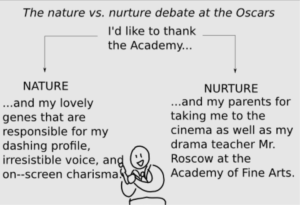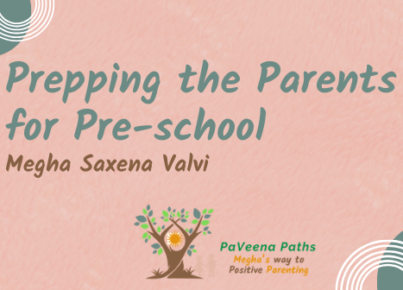” The environment is not just something that acts on us, it’s something we actively engage with, shaping it and being shaped by it in return.” – David Moore, 2017, Developmental Psychologist
Nature versus Nurture, an age-old debate has fascinated psychologists, educators, and parents alike. Nature refers to our genetic inheritance, the biological predispositions we receive from our parents. Nurture, on the other hand, encompasses all the environmental influences that impact us like upbringing, social interactions, education and cultural experiences. While nature provides the blueprint, nurture acts as the architect, shaping the final structure.
The question isn’t which matters more, but how we can embrace both to shape the best versions for our children.
Nature: The Blueprint Within
Nature is the set of genetic instructions encoded in our children’s DNA—their height, eye color, temperament, including predispositions for talents or challenges, even the susceptibility to certain diseases. Nature sets the stage, but it’s nurture that directs the play.
Nurture: The Environment We Create
If nature plants the seeds, nurture is the soil, sunlight, and water. Nurture is the Sculpting Hand. The love, the support the opportunities we give, the values we teach, the way we respond to their triumphs and tantrums. A nurturing environment can foster resilience, beliefs, behaviors, spark curiosity, and instill confidence.
Parenting: The Art of Balance
Parenting is not about choosing between nature and nurture but about harmonizing the two. Parents are the primary architects of their child’s environment, providing the love, care, and guidance that are essential for healthy development.
Here’s how parents can bridge the gap and unlock their child’s full potential
Create a nurturing environment: Provide a safe, loving, and stimulating environment where your child feels secure and supported. Resilience doesn’t come from a perfect life but built through challenges.
Provide opportunities for learning: Expose your child to a variety of experiences and learning opportunities that will help them grow and develop their innate abilities
Foster healthy relationships: Encourage positive social interactions and help your child develop strong, healthy relationships with others.
Be a role model: Children learn by observing the adults around them. Model kindness, patience, and perseverance and show them how to handle setbacks with grace.
 : https://rhapsodyinwords.com/2015/10/15/thoughts-on-nature-vs-nurture/
: https://rhapsodyinwords.com/2015/10/15/thoughts-on-nature-vs-nurture/
The Power of Synergy:
Nature and nurture don’t compete—they collaborate and by recognizing by understanding the intricate interplay of both we as a parent have the incredible power to bridges the two, shaping our children by honoring their innate traits and nurturing their growth, creating a conducive environment for them where their unique potential can truly shine.
“Parenting isn’t about perfection; but the true art and joy of raising a child, it’s about guiding your child to become the best versions of themselves.”






















